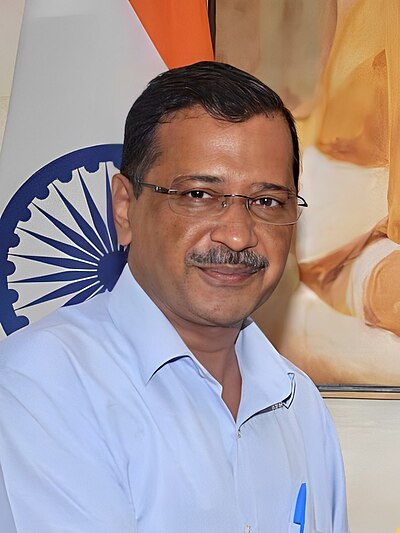Arvind Kejriwal granted bail after five months in jail.
India's Supreme Court has approved bail for Arvind Kejriwal, a leading opposition figure and the Chief Minister of Delhi, over five months after his arrest in a corruption case. Once an anti-corruption activist, he was detained in relation to a now-abandoned alcohol sales policy. Kejriwal's Aam Aadmi Party (AAP) launched this policy in November 2021, claiming it would reduce black market activities, boost revenue, and ensure fair distribution of liquor licenses.
However, it was retracted a few months later when Delhi’s Lieutenant-Governor Vinai Kumar Saxena accused AAP of manipulating regulations to favour private liquor interests. Both Mr. Kejriwal and AAP have denied these allegations, labeling them as"politically motivated." On Friday, a bench of the Supreme Court, led by Justice Surya Kant and Justice Ujjal Bhuyan, granted bail to Mr. Kejriwal, instructing him not to make any public statements. Additionally, the court ordered him to avoid attending his office or signing any official documents.
Mr. Kejriwal was granted interim bail for three weeks in May to allow him to campaign for the parliamentary elections, with the stipulation that he would refrain from performing his duties as chief minister during this time. He became the third leader from the Aam Aadmi Party (AAP) to be arrested in this case. His former deputy, Manish Sisodia, received bail in August after spending 17 months in prison, while another AAP member, Sanjay Singh, was released on bail in April.
Critics of the ruling Bharatiya Janata Party (BJP) in India have frequently accused the party of using investigative agencies to unfairly target opposition leaders, a claim the BJP has denied. Mr. Kejriwal's arrest in March, just weeks ahead of crucial parliamentary elections, prompted reactions from both the US and Germany. Matthew Miller, a spokesperson for the US State Department, stated that the US was closely observing the situation regarding Mr. Kejriwal's arrest and the treatment of opposition parties in India, which led to a "strong objection" from the Delhi government.
In April 2021, amidst the COVID-19 pandemic of 2020-2021, the Congress party criticized the Arvind Kejriwal administration for allocating substantial funds towards publicity efforts while failing to enhance oxygen storage capabilities or establish new facilities in the national capital over the preceding year. A committee appointed by the Central government strongly condemned the Aam Aadmi Party's governance in Delhi, asserting that state resources had been misappropriated for advertisements that promoted Chief Minister Arvind Kejriwal and his party, in contravention of Supreme Court directives.
A mechanical engineer by training, Mr. Kejriwal received the Ramon Magsaysay Award in 2006, often referred to as Asia’s Nobel Prize, for his efforts in promoting the Right to Information law that empowers citizens to request information from the government. He rose to national fame in India following large-scale anti-corruption protests in 2011 against the then-ruling Congress party.
Arvind Kejriwal joined the Indian Revenue Service (IRS) as an Assistant Commissioner of Income Tax in 1995, after qualifying through the Civil Services Examination. In February 2006, he resigned from his position as Joint Commissioner of Income Tax in New Delhi.
Motivated by the success of these protests, he established the AAP, vowing to eliminate corruption and challenge both the Congress and the BJP. The AAP made its electoral debut in the 2013 Delhi Assembly elections and has been governing the capital ever since, prioritizing welfare initiatives like affordable electricity and water for its residents.
Since then, the party has participated in various parliamentary and assembly elections across the nation, achieving limited success. Apart from Delhi, the AAP is also in power in Punjab. Additionally, the party is now part of INDIA, a coalition of opposition parties led by the Congress.









